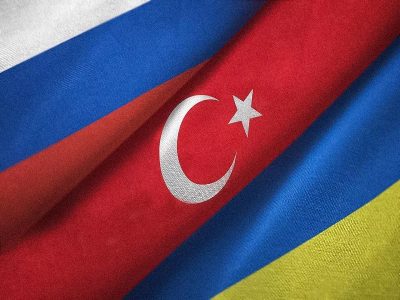Kiev’s Foiled Attack Against a Russia-Turkey Pipeline

All Global Research articles can be read in 51 languages by activating the “Translate Website” drop down menu on the top banner of our home page (Desktop version).
To receive Global Research’s Daily Newsletter (selected articles), click here.
Follow us on Instagram and Twitter and subscribe to our Telegram Channel. Feel free to repost and share widely Global Research articles.
***
It’s a matter of the highest urgency that the Turkish government and the society that it represents realize that their civilization-state’s objective national interests are now deemed by their “allies” as “legitimate targets”.
The FSB announced on Thursday that it foiled an attempted terrorist attack by Russian nationals on Kiev’s payroll to blow up one of their country’s pipelines to Turkiye. No other details were revealed at the time of this article’s publication, but it’s still possible to extrapolate from what’s known thus far to better understand why this specific target was chosen. Not only did Kiev and its Western patrons want to disrupt Moscow’s energy revenue, but they also partially wanted to punish Ankara too.
I explained in late June why “Turkiye Should Be Praised For Reaffirming Its Geostrategic Pragmatism Towards Russia”, pointing to President Erdogan’s refusal to sanction Moscow and his continued desire to cooperate with President Putin in spite their countries’ trans-regional rivalry as proof of this. Not only did the Turkish leader help broker the grain deal between Moscow and Kiev for which his Russian counterpart praised him last week, but he’s also actively working to revive talks for ending their conflict.
The problem, however, is that President Putin revealed on Wednesday in his nationally televised address that “Kiev was actually ordered to wreck all these agreements” reached throughout the course of the prior Istanbul talks because its Western patrons didn’t want it making peace with his country. This means that President Erdogan’s peace push, which aligns with his country’s de facto principled neutrality towards the conflict despite voting against Russia at the UN, is contrary to Western interests.
In fact, his country’s continued refusal to unilaterally concede on its objective national interests by jumping on the West’s anti-Russian sanctions bandwagon has resulted in Turkish companies being put on Kiev’s “hit list”. This isn’t speculation either since Foreign Minister Cavusoglu confirmed that his government officially demanded an explanation about this hostile move. The preceding sequence of objectively existing and easily verifiable events proves that all isn’t well in Turkish-Ukrainian relations.
Not only that, but ties between Turkiye and the US-led West’s Golden Billion are also rocky and have been for quite a few years already. Considering that Washington controls Kiev, it can therefore be said that this Eastern European vassal state’s aggression against third countries can be interpreted as an indirect expression of its US patron’s own such aggressive intentions. For instance, the Ukrainian Foreign Minister’s condemnation of India’s purchase of Russian oil in mid-August was done at the US’ behest.
With this in mind and remembering how President Putin also revealed in his earlier cited address from Wednesday that “NATO is conducting reconnaissance through Russia’s southern regions in real time and with the use of modern systems, aircraft, vessels, satellites and strategic drones”, it’s almost certainly the case that Kiev was ordered by the US to try to blow up that Russian-Turkish pipeline after being provided actionable intelligence for carrying out this ultimately foiled terrorist attack.
Kiev wouldn’t have been able to refuse that demand even if wanted to, but the point being argued in this analysis is that it too has an interest in punishing Turkiye (apart from the more pressing interest in disrupting Russia’s energy revenue) for its principled neutrality towards the conflict. It’s thus a matter of the highest urgency that the Turkish government and the society that it represents realize that their civilization–state’s objective national interests are now deemed by their “allies” as “legitimate targets”.
*
Note to readers: Please click the share buttons above or below. Follow us on Instagram and Twitter and subscribe to our Telegram Channel. Feel free to repost and share widely Global Research articles.
This article was originally published on OneWorld.

